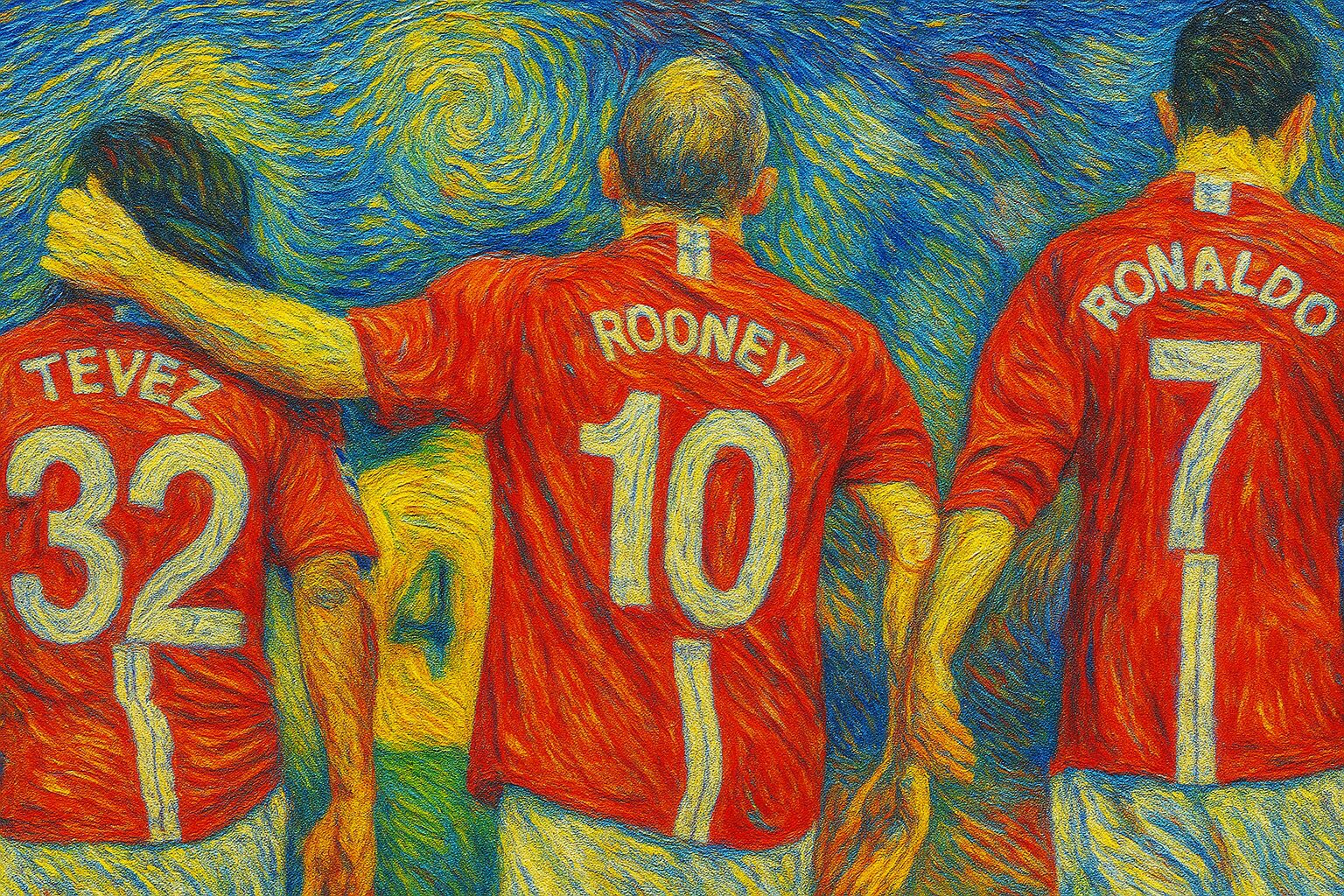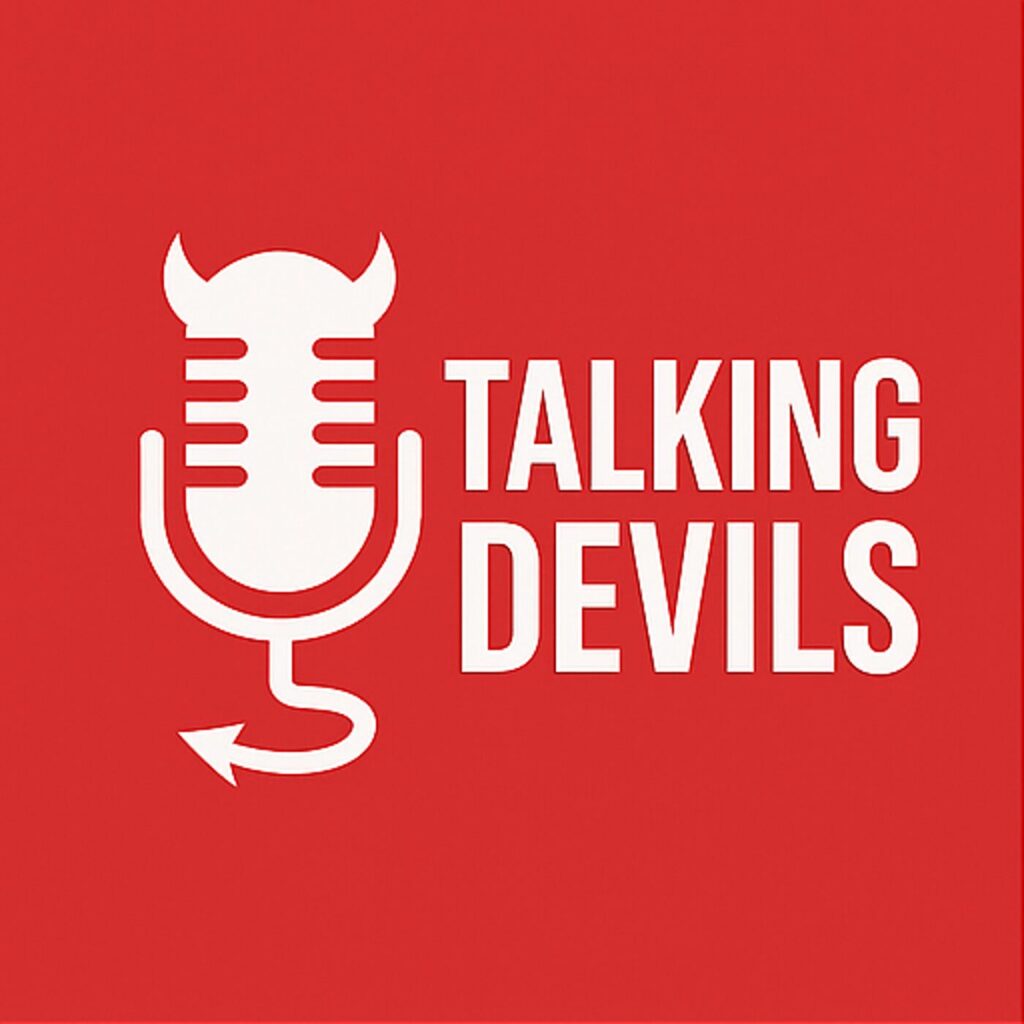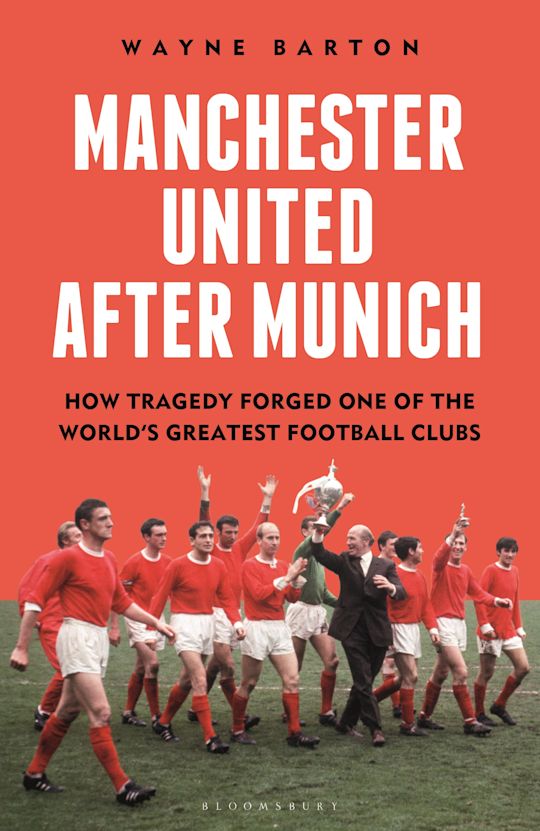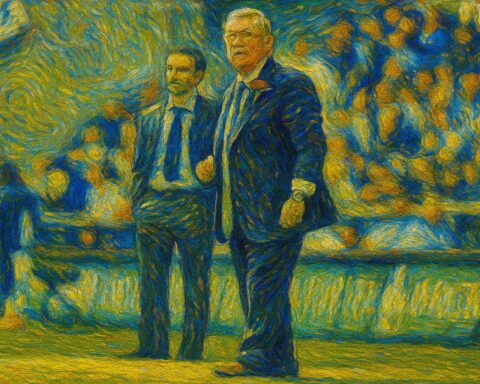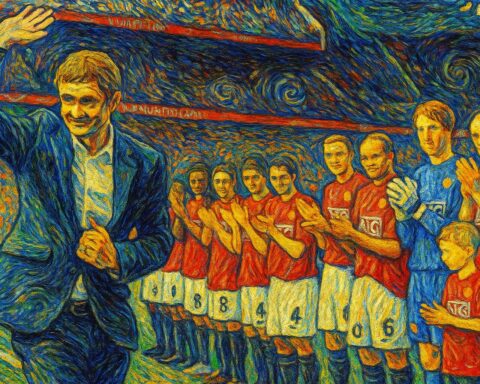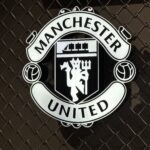The latest chapter of my unpublished book on the 2007/8 season is below.
To read the first chapter, go here. To read chapter two, go here. Chapter Three is here. We pick up in October.
October
In September of 2007, Sir Alex Ferguson had been attacked by a homeless man, 43-year-old Kevin Reynolds, at Euston Station in London. Reynolds kicked Ferguson in the shin and hurled abuse at him, before realising who he was, apologising, and then abusing him some more. The attacker then apparently hurled racist abuse at the arresting officer; in court he pleaded guilty to two counts of a racially aggravated public order offence, one count of common assault and one count of actual bodily harm. Prior to United’s game against Aston Villa after the October break, Reynolds was jailed for 15 months, presenting plenty of headline ammunition for the journalists.
United’s players were apparently unfazed by the time away from the club and came back displaying all the momentum supporters had hoped they would have picked up from their win against Wigan. They were fantastic and clinical and produced a first-half display of football which even bettered their last performance. “Attacking Sir Alex Ferguson earns a jail term. Assaulting Manchester United, however, brings far stiffer repercussions, as Aston Villa found to their cost,” reported Richard Jolly for the Sunday Express. “Two days after the tramp who assaulted the United manager was sent to prison, Villa were punished for their rather more legal attack as they attempted to beat Ferguson. After daring to take the lead and being brave enough to breach the Premier League’s meanest defence for the first time in two months, United produced an eloquent response. It was swift, clinical and utterly brutal. Three goals in 11 minutes meant that Villa, conquerors of Chelsea, had their hopes of adding to their impressive list of scalps, destroyed.”
Gabriel Agbonlahor had given his boyhood club an early lead with a header from a tremendous Ashley Young cross, but United were playing well enough to not panic at that moment. In the 36th minute, Paul Scholes played the ball to Nani, who was lurking dangerously on the right side of the penalty area. His slide rule pass behind the defence was met by Wayne Rooney who had a simple tap-in at the far post; Villa boss Martin O’Neill would have been frustrated that his players reacted as slowly as they did.
The first may have been avoidable but there was little they could do about Rooney’s and United’s second, a minute before half-time. Carlos Tevez moved with the ball and avoided two challenges before threading the ball to Rooney, who turned and slotted in from twelve yards. There was still time for a third before the break, and it was a goal Villa could definitely have done better with — Rooney’s header from a corner was saved by Scott Carson, and Rio Ferdinand hooked the rebound towards goal. On the line, Villa midfielder Craig Gardner tried to clear but sliced it up and over his head; Ferdinand ran off celebrating, but there was no way the dubious goals committee would award him that goal.
United weren’t finished. Villa’s hopes of a comeback were diminished when Nigel Reo-Coker was dismissed after receiving two yellow cards in the space of five minutes. Shortly after that, they were down to nine men, when Carson was sent off for hauling down Tevez in front of goal. A penalty was awarded, and so Rooney had a chance to score his hat-trick. Substitute goalkeeper Stuart Taylor guessed the right way and saved the kick.
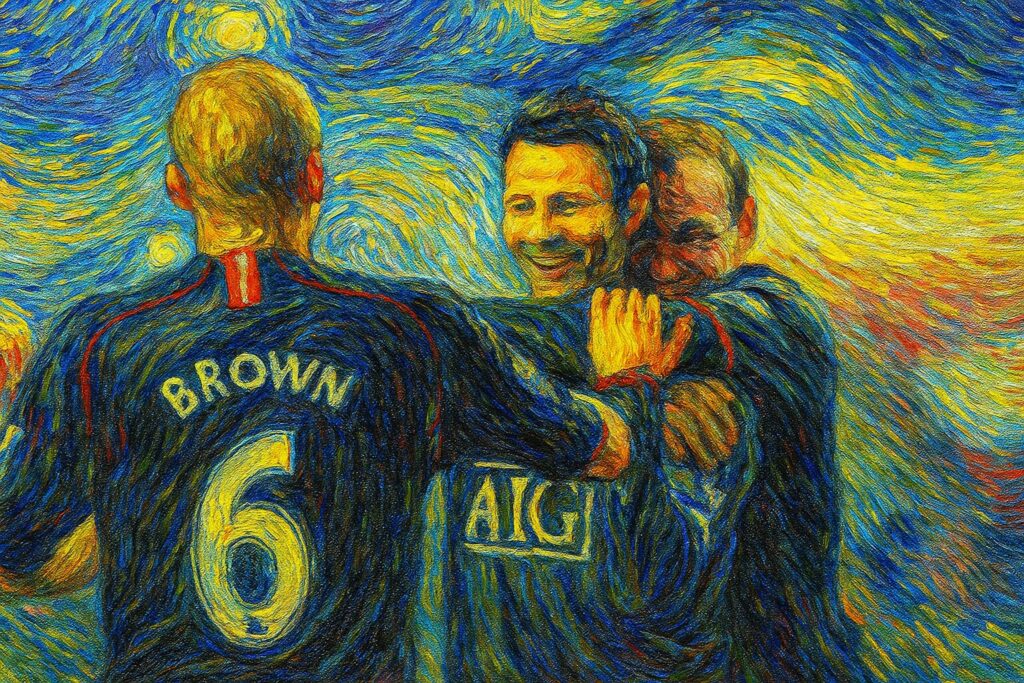
By then, many of the Villa fans were streaming out of the ground, presumably to get a good seat in the pub to watch England’s Rugby Union World Cup Final against South Africa; those left in Villa Park were chanting ‘Swing Low, Sweet Chariot’ as Ryan Giggs danced inside the home defence and hit an effort which was deflected past the goalkeeper. Unlike Ferdinand, there was enough of Giggs’ shot for him to claim his first goal of the season.
O’Neill, a little surprisingly, felt the need to criticise Rob Styles even though the referee was really given little option with the decisions he had to make. “Reo-Coker’s made two fouls in the game and he’s not helped by how the players have rolled over afterwards,” the Villa manager complained. “I think the referee will realise it’s very harsh. He’d been doing well up till then but I don’t know where he’s got it from. We conceded some poor goals but were always in the game.”
United manager Ferguson concentrated on his team’s second consecutive four-goal haul. “The performance was absolutely superb, probably our best of the season,” he said. “The first half in particular was absolutely excellent. It’s been disappointing we haven’t scored more goals and that was a big surprise considering the players we’ve had available.”
To be fair to O’Neill, he did later give credit to his opponents. Any team can have a mad 10 or 15 minutes,” said O’Neill. “Over a season you try to iron it out, you try to cut out the straightforward, simple errors, but those were so simple it was untrue. For United’s first goal the ball has come across the six-yard box and we have three players in a line to clear – three players – before the ball gets to Rooney. And no one moved. Manchester United are a good team. That’s why they’ve won about one hundred and fifteen League championships in the last few years. Tevez and Rooney? Good players can all play together. I dispute what’s said. People might think they are a bit similar because they both want to come off (the forward line), but once they do, they can turn and they can cause you problems. That’s what happened today.”
Rio Ferdinand, unsurprisingly, fully agreed. “Today the myth about Tevez and Rooney not being able to play together was put to bed,” he said. “We knew that as a team but they put it on show and their movement and awareness around each other was unbelievable.”
Now officially a veteran, Ryan Giggs was still proving himself to be an important member of United’s attacking flow. His goal crowned a great week, following the official announcement that he had signed a one year extension on his contract, committing himself to the club until 2009. I am enjoying football more than ever and I hope to carry on playing for Manchester United for as long as I can,” Giggs said.
His manager repeated the belief that his most decorated player could break the appearance record for the club. “Ryan won’t play every game for us this year, I have to say that, but he will be here next season, so either this season or next, he will break the record,” said Sir Alex. “I am absolutely delighted that he has signed for a further season. Ryan epitomises the word loyalty. He signed here as a 14-year-old schoolboy and is still with the club 20 years on. Apart from his playing ability, he has a fantastic demeanour and is a great role model to the younger players. I am sure he will be at the club for a long time to come. The way he looks after himself, he can go on for as long as he wants because I don’t see any marked deterioration in the lad at all.”
In mid-October a transfer rumour from 2003 decided to pay a visit, when Brazilian superstar Ronaldinho was linked with a move to Old Trafford. The Barcelona playmaker was out of contract at the end of the season and Chelsea had been linked with him; so, of course, the Daily Star reported that Sir Alex was preparing a ‘sensational bid’ for Ronaldinho, that would get one over on Chelsea, and ‘the last laugh’ on ‘Peter Kenyon in particular’. However, as United prepared to travel to Kiev for their third Champions League group game, Ferguson insisted that he would not be making any moves to reinforce his squad in January.
Nemanja Vidic missed the game with Villa — Pique again impressing in his place —but he would make the trip to the Ukraine and be given until the last moment to prove he was over the concussion he has suffered against Wigan. “Vidic is a doubt,” Fergie said. “He trained on Friday but he is still feeling some reaction to the knock. In that situation you can’t take a chance. I’m hopeful he will be ready.”
In Kiev, Ferguson was asked about the partnership that was beginning to earn rave reviews up front. “We’ve had some fantastic partnerships over the years and most of them took time to develop, apart from Andy Cole and Dwight Yorke,” said Sir Alex (though it ought to be remembered that Cole and Yorke were also not instantly selected as a pair). “Wayne is 22 this week, Carlos is only 23 – so they are both young players. Both have great attributes as strikers — courage, speed and the ability to beat men. But it’s maturity they lack. Once they get that, you will see greater authority, better timing and judgement from them. And when that comes, hopefully they’ll still be at this club and people will see something really special from them. “It is a test of character for every player who joins this club. But Carlos has provided his own answer to that. He has been very very good, we’re delighted with his attitude in training and in matches, and we were very lucky to get him.”
Ferguson had been able to afford the luxury of leaving Cristiano Ronaldo on the bench at Villa Park, bringing him on as a second half substitute. Little wonder then, that the manager was concentrating on the players he had at his disposal, and hoping that the ones carrying injuries could get over them and become major players for him. Louis Saha wouldn’t play against Dynamo but the United boss said he wanted to treat him with kid gloves. “It is just a matter of taking it carefully,” he said. “It is a long season and we want to make sure he is fit for the rest of it.”
Having had such a rough time on their European travels, United made it two away wins from two in Group F — three out of three overall — putting them in a fantastic position to secure early qualification. European away games have a special feeling about them which almost segregates them from the usual demands of the fixture calendar. These encounters are to be endured and survived, with a result of any kind seen as a shot in the arm. The complexities of this have changed with the introduction of group stages but the principle remains the same; win your home games, draw your away games, and you’re guaranteed qualification into the knock-out stages. It is no coincidence, however, that when United have bucked that trend, they have generally gone on to enjoy successful seasons. And by ‘bucking that trend’, I mean to have taken a fearless approach to their visits to the continent, a dedication to keep the momentum going in the domestic form. After two four goal victories in the Premier League, they scored another four in the Olympic Stadium to put Kiev to the sword. It was their biggest away win in Europe since the 6-2 battering of Brondby in 1998 and that should have been a good omen in itself.
It didn’t all go to plan, though. Vidic was back in the line-up but Paul Scholes was ruled out the night before the game with a knee injury and Patrice Evra picked up a calf strain in the warm up. John O’Shea had initially been selected as Scholes’ replacement but was moved to left back and Darren Fletcher came into midfield alongside Anderson.
Ismael Bangoura aimed to catch the visitors cold with a first minute effort but United settled quickly. Ronaldo looked as if he would be the chief tormentor but the identity of the first goalscorer was a shock to everyone — Rio Ferdinand was the man who met Ryan Giggs’ 10th minute free kick to head in his first Champions League goal for the club. After the debate about the goal at Villa Park, there could be no taking this goal away from Ferdinand. Ronaldo and Wes Brown combined eight minutes later to create the second goal, the latter’s cross presenting a simple chance for Rooney to convert.
Diogo Rincon’s free header from a corner reduced the deficit — a goal as much against the play as any could be — but United restored their two goal advantage just before half-time when Ronaldo got on the scoresheet, heading in another fantastic Giggs cross. More goals should have followed — Anderson almost registered his first goal for the club, but his effort hit the post — before Ronaldo was able to give the scoreline the comprehensive gloss his team’s performance had earned. Goran Gavrancic’s clear handball left Hungarian referee Kassai no option but to blow for a penalty and Ronaldo got his second of the night from the spot.
Kiev did get another goal back through Bangoura with 12 minutes to go; after conceding, Edwin van der Sar complained of a knock, and was brought off for Tomasz Kuszczak.
Manager Sir Alex Ferguson focused on the positives afterwards. “The attacking play was excellent — we could have scored a lot of goals,” he said. “We had to defend well during some moments in the second half because they they were a bigger threat. No matter who we’re playing we’re adapting well. The players aren’t worried about new formations.”
Ryan Giggs was asked about the injuries. It looked likely that Paul Scholes may require an operation for a cartilage problem but Giggs insisted the squad was big enough to cope with the difficult hand it was being dealt. “There was no disruption,” the winger said. “The manager has chopped and changed this season already, whether that be due to injuries or suspensions, and we have coped with it. It just proves the value of having a good squad.”
Certainly, so long as the goals kept coming, then United could compensate for the problems elsewhere in the side. And now that Wayne Rooney was hitting his confident stride, the striker was sure the club could prosper. “We’ve got a few injuries at the moment – a lot of key players missing – but we have a good squad and we know we are capable of winning this competition,” Rooney said. “We have got Kiev again in a couple of weeks and if we win we are through to the knockout stages with two games to spare. I hope there is more to come because after a poor start to the season we’re doing really well. There were some really good goals against Kiev. The partnership with Carlos is going really well. I thought he was brilliant against Kiev. His work-rate and touches were great. We’re gelling well and I hope that can continue. I can play as the one going in behind the defence or the one looking to play the ball in behind. Carlos can do the same so we can switch easily.”
One of the beneficiaries of the injury issue that was building its way into a crisis, John O’Shea, believed that the new range of firepower at the club’s disposal had opponents fearful. “You sense that some teams are maybe scared of us,” said the Irish international. “I think nights like this really make teams aware of what we are capable of. With the pace and power of Wayne, Ronaldo, Tevez and Giggsy we look like we can score every time we attack. Training against them every day gives you a great opportunity to improve your defending because nine times out of 10 they still go past you. When teams come to Old Trafford they like to try to play for the draw. But with the attack we have, they are going to be wary of just trying to defend. It’s great to be involved in a team that has so much attacking power because you know that, while it was disappointing to have conceded two goals against Kiev, we know that we are going to score goals. The defenders and midfielders know that if we can keep a clean sheet in the first hour, it’s more than likely that we are going to have a lead and that is a great boost to have. It’s not a case of feel- ing unbeatable, we just know that with the players we have we’re going to be creating chances in games and it’s important for the defenders and goalkeepers to keep a clean sheet.”
Asked about the injury problem at the club, O’Shea said that was precisely why the summer influx had happened. “There is great strength in depth in this squad,” he said. “That is the difference between this squad and previous ones. We’re getting stretched to the limits at the minute. Hopefully we’ll have some experienced lads back soon but we’re showing we can more than cope. That’s why the manager splashed out in the sum- mer and hopefully we’ll see the fruits of that towards the end of the season. When we do have a fully fit squad again then the manager will have a lot of hard decisions to make.”
Thankfully, Edwin van der Sar relieved the boss of one of his headaches by declaring himself fit to play against Middlesbrough in the club’s first Saturday 3pm fixture of the campaign. The Dutch ‘keeper said he wished to extend his contract which expired at the end of the season. “Officially, my agent has not heard anything official from the club yet but I expect to hold talks with the relevant people in December,” he said. “Last year we extended my contract in that month, so that could well happen again. I am very happy here at the club. I am playing at a very high level every week and, with my experience, I can maybe help the younger players a lot in the future. You can guess what I will do if and when I get a new offer from the club.”
Ferguson’s more pressing issues came in how he would organise his midfield, especially with a big game at Arsenal coming up after the ‘Boro match. The first scan for Paul Scholes had proved inconclusive. “The scan didn’t clearly show the problem, so we’re sending him to another specialist to try to ascertain exactly what damage, if any, there is and how to deal with it,” Ferguson said at his pre-match conference. “It was a strange one. He just felt a little click in his knee when he turned during training last Monday night in Kiev. We are hoping he won’t be out for long, but we’ll know better on Monday. The good news is that Owen Hargreaves is fit and plays against Boro. Michael Carrick goes for a scan on Monday and, if he gets the all-clear, he’ll be available for the game at Arsenal. Louis Saha has done some training this week and he too might be ready for Arsenal. Gary Neville has completed 16 training sessions in a row and, though he feels ready to play, he just needs a warm-up game which we’re trying to arrange. So, with one disappointment comes good news on another front.”
Hargreaves and Anderson, the two summer recruits, would combine to form a new engine room in United’s midfield. Their manager had high hopes. “It’s been very frustrating for Owen – he’s only played three games for us,” admitted Ferguson. “He came for a big fee and is disappointed with the situation, but it’s a long season and if he stays back that’s terrific news for us. Owen gives us a better chance of doing well. He’s a different midfielder to what we’ve got. He sees danger very well and he has fantastic speed. He’ll do a terrific job for us, particularly in Europe, and I am delighted he’s finally over his injury. If he gives me an hour against Boro, I’ll be pleased.”
Hargreaves hadn’t yet had a chance to truly impress on the pitch; Anderson, on the other hand, had started to show glimpses of what he was capable of after a start which suggested he would not make the transition to English football. “At 19, he shows fantastic qualities,” Ferguson said of the former Porto and Gremio midfielder. He has settled in really quickly and has shown some fantastic qualities,” said Ferguson. “He is quick about the field, he can defend, attack – he has got a lot going for him. But what is impressing us is his knowledge of the game. I noticed the other night in Kiev he was directing players who were older than him. That is nice to see from a lad of 19, especially when his English is not perfect. But he is using the universal language of football. I saw him a couple of times at Porto as a young lad, then he broke his leg and was out five or six months last season. Coming back from that is not easy but we took the risk on him and we’re seeing the ability he has now. Like Carlos Tevez, he missed pre-season training because of the Copa America and it has taken time to get his fitness levels up. But since he went into the team, he’s showing a terrific appetite and we were delighted with his performances in the last three games.”
Manchester United versus Middlesbrough is far from the most hostile fixture in British football; but then again, being the biggest club in the country comes with its own micro-climate in which rivalries are formed, rivalries which are important to the supporters of whoever United are playing on any given week. In the 2006/7 season, there was a hostility from Middlesbrough towards Cristiano Ronaldo, beginning from the league visit of United in the December. United had been awarded an early penalty when Mark Schwarzer was adjudged to have brought down Ronaldo; replays suggested there had been no contact, provoking rookie boss Gareth Southgate to say he felt cheated. Alex Ferguson was prompted to launch a public defence after days of criticism of his player, who he described as ‘the most fouled player in the country’. “What’s more serious in our game, preventing the best players playing or going on for three days about a dive that wasn’t a dive?”
Ferguson said at the time. “I have seen it a million times and Cristiano lost his balance completely. As I have said time and time again, we do not condone diving and Cristiano knows that. But it is difficult for players who run as quickly as he does. For instance, if you were driving at 70mph in a car and another car comes out in front of you, do you brake or carry on? The interpretation is down to the referee but, to me, it was a clear penalty… The first thing that happened to him at Middlesbrough on Saturday was that he was hacked from behind. The referee did not book the player, which only encourages players to keep kicking him and kicking him. All I know is that Cristiano is the most fouled player in the Premiership and the stats are there to back it up.”
Ronaldo said he felt that the press were still on his back following the World Cup. “Southgate stopped playing football last year. He needs to understand football much better,” said the Portuguese forward. “I was trying to get past the goalkeeper. I lost my balance. I realise people criticise me for anything I do. They love to do that ever since the World Cup. But it doesn’t bother me.”
Later in the season, the clubs were drawn against each other in the FA Cup quarter-final. They drew at the Riverside, and the replay in Manchester was decided by a late penalty — scored, and won, of course, by Ronaldo. The Boro staff were incensed and jumped off the bench to remonstrate angrily with the officials. Substitute James Morrison took ‘retribution’ into his own hands in the last minute when he lunged horrifically at Ronaldo as the winger had the ball in the corner, running down the clock. Morrison was rightly sent off for his horror tackle and Southgate admitted by then that the players and staff had lost their heads, though defended their right to have done so. “The galling thing for me is that we have played them three times this season and conceded three dodgy penalties,” said the Boro boss. “In the heat of the moment, everybody is entitled to a reaction. It is the 75th minute of an FA Cup quarter-final. People are going to react in a way you wouldn’t normally. We certainly lost our discipline in the last five minutes. James Morrison is a young kid and he has a lot to learn. In that situation, we would all love to do that but you have got to be mature enough to make the right kind of tackle.”
Ronaldo’s response to the incident provided an insight into just why he seemed to rub people up the wrong way. “Maybe someone doesn’t like me,” he shrugged with a smirk. “Because maybe I’m too good. I don’t know why.”
Heading into their game at Old Trafford in October 2007, Boro could hardly have been in worse form; they had lost three games on the bounce, to Everton, Manchester City and Chelsea respectively, and the last thing Southgate needed was to face free-scoring United, even if he was confident in his own ability as a manager. “Last season, people questioned whether I was capable of doing this job,’’ he said. “Now I have evidence in my own memory bank that I can. I’ve got a realistic idea of where we are now and where we are going. There is a lack of patience in football but I am at a club where there is fantastic support from not just the chairman and chief executive but everyone else. You could drown in a sea of negativity but I’m determined not to let that happen. I think we have improved as a club, but we have to respond to results that do not reflect that… He (Ferguson) called me naive last season, but I’m not naive about matters on the field,” he said. “Yes, I’ve had only 50 games as a manager while he’s had more than 1,000 so, in that sense, I’m guilty as charged. I’ve no problems with Sir Alex because it was never personal. I have terrific respect for the man.”
Boro did stop Ronaldo tormenting them for once, but they quickly discovered that doing so was only part of the problem. There were less than three minutes on the clock when Nani danced past three challenges and then hit a howitzer from thirty yards which flew into the top corner. No description could do the goal justice; if it was a moment of quality that the player never managed to replicate throughout the rest of his career at the club, then, it was a worthy moment, rather than a source of denigration.
Old Trafford was rocking but three minutes ago was silenced as an opposition team scored a goal for the first time there this season; Tuncay was given time to turn John O’Shea inside out, with the defender seemingly happier to allow the Turkish forward to have the time to pick a cross rather than commit and perhaps foul him that close to the box. Tuncay’s cross was headed by Jeremie Aliadiare — unmarked himself — past van der Sar.
Boro were game, and perhaps inspired by their decent record at Old Trafford over the years, grew in confidence; Stewart Downing had a great chance to give them the lead, but headed wide. Just after, Downing found himself harassed by Anderson and Nani on the edge of his own box. The latter got the toe to the ball, which rolled deliciously into the path of Wayne Rooney; the striker hit a powerful shot into the goal to give his team a 33rd minute lead. Ferguson’s team were not just profiteering from their opponents’ mistakes, though, and the third goal, ten minutes after the break, was another of those wonderful moments which exemplified the brilliant football United had been playing. After Boro cleared one wave of attack, Anderson drove forward from midfield with the ball. He flicked it to Tevez, who was moving outside the box. The Argentinian played an intelligent one-two with Rooney and smartly finished into the goal; the move all the more attractive for Rooney’s back-heeled assist.
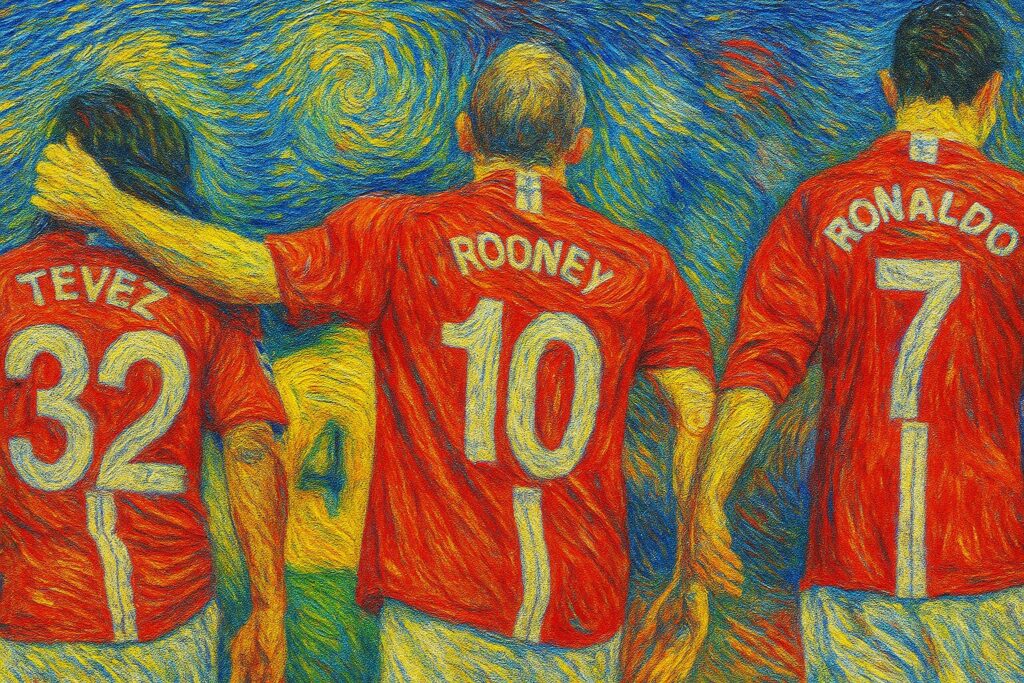
The same combination worked for the fourth goal, too — Rooney and Ronaldo broke at lightning speed before Rooney played in Tevez on the left hand side of the box. At first, Tevez’s effort looked as if it had been stopped by Schwarzer; it had, however, come off the hand of centre-back David Wheater, and referee Alan Wiley would surely have awarded a penalty if the ball hadn’t bounced into the goal after looking like it was going to go over. It was the first time in over 100 years United had scored four goals in four consecutive games (one hundred years and nine days, if you’re asking).
United assistant Carlos Quieroz told the BBC that it hadn’t been as straightforward a win as the scoreline might suggest. “Boro made it difficult for us, they came back well to make it 1-1,” he said. “We expect to start the game with a lot of quality and enthusiasm, and usually when we do that the game becomes easier. That was not the case today. But we regained out composure, first touch and movement and we started to control things and deserved the win.”
The gaffer was delighted with the win. “Our third goal summed up the Rooney- Tevez partnership,” said Ferguson. “It was an example of great thinking and also courage by Wayne in attempting the back-heel to set up Carlos. They are young players and if they mature and develop into experienced players here then hopefully we will see the complete partnership. It’s amazing that after all the 1-0 wins, it’s now a case of fours. Some of our attacking play was very good, although we got a break for the second goal but Wayne still hit a great shot. Nani deals in thunderbolts and he’s done well for us and has made a good impact. By playing him in this match, I was able to keep Ryan Giggs back for next week at Arsenal. Middlesbrough gave us a difficult 20-minute spell and you have to give them credit for that. But we now have no midweek game before the Arsenal match and that’s good for us.”
Owen Hargreaves came off in the 66th minute but his manager confirmed that was just a precaution. “Owen should be all right for the Arsenal game,” said Sir Alex. “He gives us something different and you can tell he has the experience of playing a lot in Europe. He’s cool, he’s got a good temperament and he’s been a great addition to the squad.”
Rooney, who had taken his tally to six goals in six games, felt he had recovered fully from the injury which had been such a source of frustration earlier in the campaign. “I’m feeling good at the minute. I feel better and sharper with each game. I’m playing like an old fashioned centre-forward – I’ve started to score easy goals which I’ve never really done before. We’re playing brilliant, fast, attacking football and that is the sort of football that I want to be involved in,” said the striker. “I know now that it is my job to score goals and try to score in every game I play in. That is what’s happened in recent games and hopefully that will continue. We know how Carlos plays – just in behind the opposition’s midfield. That is where I like to play as well but when Carlos plays I will have to stay higher up the pitch and be the centre-forward, whereas if Louis Saha plays then I will tuck in a bit more. But that is no problem – I enjoy playing both roles and I feel I can change my game to whoever I play with. And as long as you are scoring you are not really bothered where you are playing.”
Rooney believed he had matured in the three years he had been at Old Trafford. “You’ve got to remember when I first starting playing first-team football I was only 16 and I think the emotions of any 16-year-old playing in the Premier League are going to be all over the place,” he said. “You are going to be a bit short-fused. But I think with age it has got better each year. When I look back now and see myself shouting at the referee and some of the players, I think it is better to show them a bit more respect really. It was just a case of getting my frustration out, but there is no problem with that anymore.”
United’s win put them back to the top of the table; a position they had occupied briefly after their game against Everton and Wigan Athletic, though results elsewhere quickly nudged them back down. So too, would this stay at the top of the table be temporary, as Liverpool and Arsenal prepared to battle in the biggest fixture of the weekend. “I’ll have my Liverpool scarf on for that one,” said Sir Alex Ferguson.
Despite United’s stunning form, Jim Holden, the Chief Sports Correspondent for the Sunday Express, declared ahead of Arsenal’s trip to Liverpool that it was ‘certain’ the Gunners played ‘best football anywhere in the world right now’ after their 7-0 win over Slavia Prague in the Champions League.
Holden purred: “Who knows if they will capture a first league title for the Gunners since the Invincibles of four years ago? Early-season dominance is no guarantee.Even as the action was swirling around there was talk among the TV commentators that all the glory of the Slavia game would “count for nothing” if Arsenal failed to win silverware this season. You have to believe such cheap cynicism is wrong. The way the game is played does matter. Arsenal sell out all their games because people want to devour the sparkling brilliance of their champagne football. In the last two years without a trophy there has barely been a murmur of discontent about the work of manager Arsene Wenger. The fans have trust and faith in his team-building. Why? It’s surely explained by the quality of football they have been privileged to watch in the past decade.”
Arsenal drew 1-1 with Liverpool, scoring a late equaliser through Cesc Fabregas to go back to the top of the Premier League on goal difference, albeit with a game in hand on United. With the top of the table clash to follow, Arsenal were already being heralded as Champions-elect as early as October.
